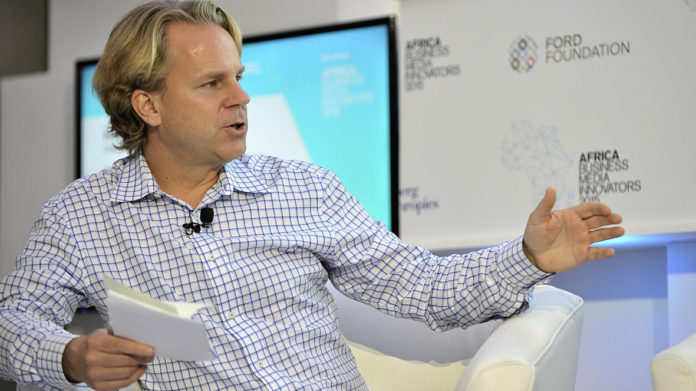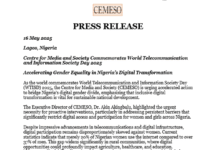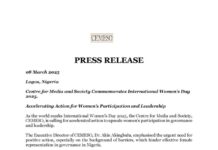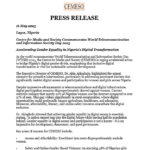Justin Smith is the CEO of Bloomberg Media Group. Last week, he was on a short visit to Lagos to seek participation of Nigerian business leaders at the second edition of the New Economy Forum slated for November 20 to 22, 2019. He spoke with MARGARET MWANTOK about Bloomberg’s media intervention programmes in Africa. Excerpts.
Bloomberg has been involved in the development of capacities for journalists in Africa. How successful has this been?
Bloomberg has a great deal of interest in developing strong journalism industry in Africa. Since 2013, we have developed something for the Bloomberg Media Initiative Africa, a programme made possible by Bloomberg Foundation.
The programme has many aspects such as journalism training at universities across the continent – we work with journalism schools, business schools to train journalists and business journalists.
We have a programme where we select African business and financial journalists to take part in a fellowship initiative, which is a year-long experience where we create a curriculum and host different meetings of the fellowship. We are also working with governments across the continent to help develop a better standard for economic data collection and presentation. We also do the yearly meeting, which we did in Johannesburg first, then to Nairobi, Lusaka and next year, it’s going to be in Dakar, to bring together all the leaders of African media.
How do you assess the contributions of your organisation to the development of the media profession in Nigeria and Africa?
It ultimately comes down to the number of people that we can work with and the number of people we put in our fellowship programmes; the number of universities we can partner with to establish these initiatives, and I think that our biggest internal assessment is how many people we are able to work with to share our knowledge and some of our learnings about business and financial journalism, but the broader impact is more difficult to measure but it is the quality of business journalism across the continent. And if we are able to empower individuals through knowledge and better tools and techniques in business journalism, then the hope is that the quality of journalism would improve and the industry would improve as well.
Would you say the media intervention has improved the lot of journalism in Africa?
It would be too bold of a statement to say that our modest efforts have actually changed the African media. I think that is a very big objective but we have been able to make a big difference and I hope we continue to do so, even if its just a great piece of journalism that emerges and changes the course of a company or an industry, that in itself is a very viable contribution.
The aftermath of the last American elections revealed the impact that AI and the digital world could have on political manipulation. This was made clear by the admitted impact that one company, Cambridge Analytica had on the outcome of the election. What is the potential of this spreading to other countries, especially in Africa where the laws are not so strong to capture such digital manipulation just yet?
In the US election of 2016, three of the five most consumed pieces of news on Facebook were fake because they went the most viral. So, this is not a Nigerian problem, this is a global problem. From my perspective, certain things need to be done.
The starting point really has to do with social media platforms taking responsibility. This is why in America, the big social media platforms refuse to call themselves media platforms but technology platforms, which indicates that they are not responsible for the content published on the platforms, whereas the media company is regulated and held accountable based on the quality of the content.
A television station broadcasting fake news would lose its licence, a newspaper that is writing fake articles all the time would face some sort of regulatory pressure, and this is beginning to happen in America for the first time.
Just recently, the American government announced for the first time serious investigation into global Facebook, Amazon and Apple antitrust, privacy and civic responsibility and I think none of the platforms have done anything to try to control this misinformation and all the efforts so far have been very minor, compared to the overall size of those businesses, the investments they have allocated towards fixing fake news have been really small.
















